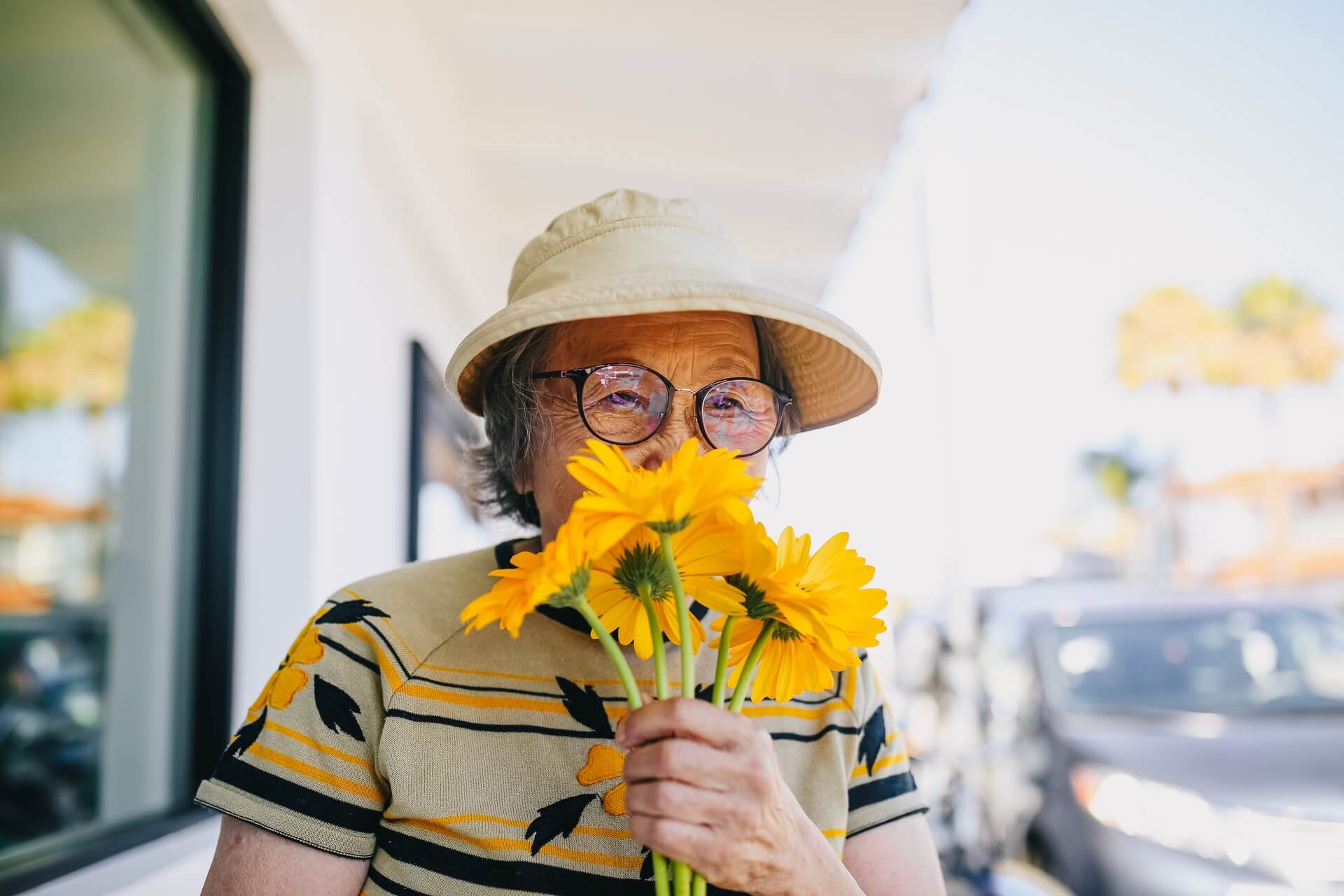IRVINE, Calif. — Certain aromas can send us back to the past in a flash. The smell of the sea brings many back to childhood summers at the beach. For others, freshly baked cookies evoke memories of their grandma’s kitchen. Now, researchers from the University of California-Irvine found that a form of aroma therapy can help improve older adults’ memories by a considerable margin.
A fragrance wafted through the bedrooms of older adults for two hours every night for a total of six months, and their memory skills improved in a major way. Incredibly, study authors report that the participants enjoyed a 226-percent increase in cognitive capacity compared to a control group.
All in all, researchers say their work transforms the long-known tie between smell and memory into an easy, non-invasive technique for strengthening memory and perhaps even deterring dementia.
Conducted through the UCI Center for the Neurobiology of Learning & Memory, this project encompassed both men and women between the ages of 60 and 85 without memory impairment. Each person received a diffuser and seven cartridges, with each containing a single and different natural oil. Those in the enriched cohort received full-strength cartridges. Control group participants, on the other hand, only received tiny amounts of the oils. The seniors then put a different cartridge into their diffuser each night before going to bed, and it would activate for two hours as they slept.
Participants in the enriched group displayed a 226-percent increase in cognitive performance compared to the control cohort, as measured by a word list test commonly used to evaluate memory. Notably, medical imaging scans revealed better integrity in the brain pathway called the left uncinate fasciculus. This pathway, known to connect the medial temporal lobe to the decision-making prefrontal cortex, tends to turn less robust with age. The group also reported sleeping more soundly.

It’s long been established that the loss of olfactory capacity (the ability to smell) can predict the onset of nearly 70 neurological and psychiatric diseases. Specific examples include Alzheimer’s and other dementias, Parkinson’s, schizophrenia, and alcoholism. Now, evidence is beginning to emerge suggesting a link between smell loss due to COVID-19 infections and subsequent cognitive decline.
Researchers had previously found that exposing people with moderate dementia to up to 40 different odors twice a day over a certain period of time boosted both their memories and language skills, eased depression, and improved olfactory capacities. The UCI team set out to turn this knowledge into an easy and non-invasive dementia-fighting tool.
“The reality is that over the age of 60, the olfactory sense and cognition starts to fall off a cliff,” says Michael Leon, professor of neurobiology & behavior and a CNLM fellow, in a university release. “But it’s not realistic to think people with cognitive impairment could open, sniff and close 80 odorant bottles daily. This would be difficult even for those without dementia.”
“That’s why we reduced the number of scents to just seven, exposing participants to just one each time, rather than the multiple aromas used simultaneously in previous research projects. By making it possible for people to experience the odors while sleeping, we eliminated the need to set aside time for this during waking hours every day,” adds the study’s first author, project scientist Cynthia Woo.
Study authors note the results of this study bear out what scientists learned about the association between smell and memory.
“The olfactory sense has the special privilege of being directly connected to the brain’s memory circuits,” explains collaborating investigator Michael Yassa, the James L. McGaugh Chair in the Neurobiology of Learning & Memory. “All the other senses are routed first through the thalamus. Everyone has experienced how powerful aromas are in evoking recollections, even from very long ago. However, unlike with vision changes that we treat with glasses and hearing aids for hearing impairment, there has been no intervention for the loss of smell.”
Next, researchers would like to study the technique’s impact on people with diagnosed cognitive loss. Additionally, they hope this work will lead the way toward more investigations into olfactory therapies for memory impairment. A product based on this research, designed for people to use at home, is expected to reach the commercial market this fall.
The study is published in the journal Frontiers in Neuroscience.
You might also be interested in:
- Losing sense of smell an early warning sign for people carrying Alzheimer’s gene
- ‘Scent-stalgia’: 3 in 5 people can still remember smell of childhood home
- Best Brain Supplements: Top 5 Cognition Boosters Most Recommended By Experts


So this must be great news for panty sniffers.
Interesting comment. I’m gonna put out an untested hypothesis that the embarrassed snark around odors, and especially sexual odors may actually have to do with scent’s “royal road” to the brain.
This is encouraging stuff overall … it would be great to get some details to allow home experimentation since the setup seems simple
Scary stuff too … our less-than-savory operatives that populated the black sites and developed “enhanced interrogation” might be all over this one
WHERE can we buy these odors that would enhance our memory and brain health for older people ?
is it possible by postal order ?
thanks
This is VERY good news for anyone who is a caretaker of their elders in their 70s (not far behind here, so I got some scents going myself). Which brings up the question of scented candles, incense sticks, etc…It would be nice to know the status of using these alternatives.
Additionally, using a diffuser in a common room on one floor…will the same effect be observed with the strength not as strong?
Specific scents? Can I just go to Amazon and get a 2 hour diffuser and 40 (10mL) bottles?